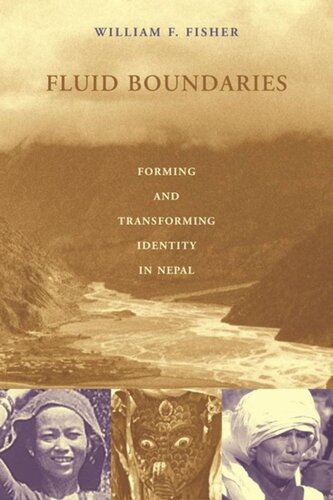

Most ebook files are in PDF format, so you can easily read them using various software such as Foxit Reader or directly on the Google Chrome browser.
Some ebook files are released by publishers in other formats such as .awz, .mobi, .epub, .fb2, etc. You may need to install specific software to read these formats on mobile/PC, such as Calibre.
Please read the tutorial at this link: https://ebookbell.com/faq
We offer FREE conversion to the popular formats you request; however, this may take some time. Therefore, right after payment, please email us, and we will try to provide the service as quickly as possible.
For some exceptional file formats or broken links (if any), please refrain from opening any disputes. Instead, email us first, and we will try to assist within a maximum of 6 hours.
EbookBell Team

4.0
76 reviewsExamining the relationship between societal practice, historical processes, and culture in a Nepali society, this book tells the story of the Thakali's search for identity and their efforts to clarify and represent their culture and history.
More than an ethnography, this book clarifies one of the most important current debates in anthropology: How should anthropologists regard culture, history, and the power process?
Since the 1980s, the Thakali of Nepal have searched for an identity and a clarification of their "true" culture and history in the wake of their rise to political power and achievement of economic success. Although united in this search, the Thakali are divided as to the answers that have been proposed: the "Hinduization" of religious practices, the promotion of Tibetan Buddhism, the revival of practices associated with the Thakali shamans, and secularization.
Ironically, the attempts by the Thakali to define their identity reveal that to return to tradition they must first re-create it—but this process of re-creation establishes it in a way in which it has never existed. To return to "tradition"—to become Thakali again—is, in a way, to become Thakali for the very first time.